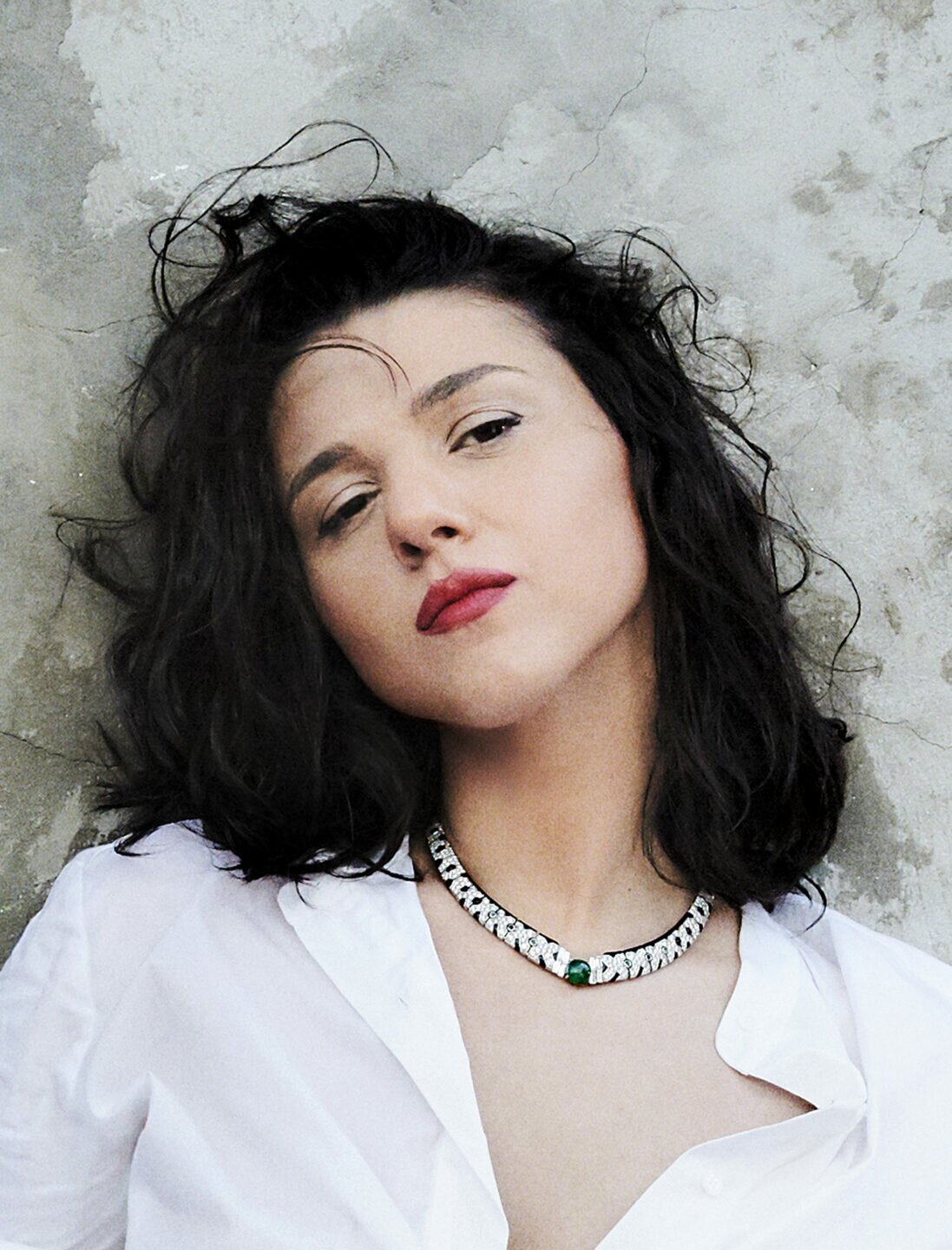Khatia Buniatishvili is someone who feels intensely — for the melodies she coaxes out of 88 black and white keys and for human suffering, inequality and injustice. Rather than rein herself in, she dives in wholeheartedly: seated at a grand piano before an orchestra, she brings vigour and intensity to the stage, and her glamour and Romantic expression have earned her sobriquets including “pop star of the classical music world”.
“I’ve always had a lot of temperament, energy, passion, emotions and sensitivity to share… in art and in life,” the French-Georgian pianist tells A Magazine.
“I am never afraid of ‘too much’ — too much love, freedom, imagination or respect, because those things are immaterial and emotional and cannot be measured or limited.”
Buniatishvili’s philosophy is on full display in her latest album, Labyrinth, for which she selected wistful and often melancholic pieces by composers from Bach to Brahms. The accompanying music videos, which show the 34-year-old performing hauntingly beautiful renditions of Serge Gainsbourg’s La Javanaise and Erik Satie’s Gymnopédie No. 1 in an empty concert hall, exude quiet but fervent strength — an apt reflection in our current climate.
That same sensibility appears in her humanitarian commitments: Buniatishvili maintains a laser focus on contemporary issues, including child development, refugee aid and climate justice. Her most recent charitable initiative involved working with the Philharmonie de Paris on Démos (the French acronym stands for “musical and orchestral education system with a social vocation”), a long-term educational project that places 7- to 12-year-olds living in underprivileged urban areas or isolated rural regions into symphonic orchestras and loans musical instruments to the kids.
“Inequality makes me feel bad, powerless,” Buniatishvili says. “I try to do my best to change something, even if it’s just for one person. Rationally speaking, there could be long-term solutions found, if there is will, intelligence and generosity.
“Nothing is worse than to see… a human being starving, in pain or desperately thinking about the [immediate] future.”
For her “strength of character, virtuosity, open-mindedness and piercing intellect”, Buniatishvili was named an ambassador of Cartier last October. Cyrille Vigneron, president and CEO of Cartier International, praised her “delicate exuberance”.
“Body and soul, with measure and unbridled energy, Khatia embarks us into the dizzying exploration of human emotions and passion,” he added.
Dubbed a wunderkind for her prodigious musical talent — though she “[doesn’t] like commercialising the capacities and internal world of children” — the Georgia native gave her first concert as a soloist with the Tbilisi Chamber Orchestra when she was just six, performing Concerto Op. 44 by Isaac Berkovich. After enrolling in the Tbilisi Conservatory at 16 and then Vienna University of Music and Performing Arts at 19, she went on to make her professional debut in 2008, competing in the Arthur Rubinstein International Piano Master Competition in Tel-Aviv and performing at Carnegie Hall. Since releasing her first album — a recording of works by Liszt that was launched under Sony Classical in 2011 — her oeuvre has diversified to include a collaboration with British pop-rock band Coldplay on its 2015 album, A Head Full of Dreams.
Buniatishvili may be at the zenith of the music world, but growing up in “total chaos and financial difficulty” in post-Soviet Georgia had a profound and permanent influence on her, making her a steadfast champion of social causes.
“It doesn’t matter how successful I am — I always have been and always will be sensitive to this subject,” she says.
In particular, she remembers her parents’ struggle to procure food and education for her and her sister, pianist Gvantsa Buniatishvili.
“They thought at night what to do the next morning. Planning further was not possible — most of the time, we didn’t have any electricity,” she recounts. “But my parents managed to create memorable, joyful and creative moments with candles, to make sure we were not scared and [that we thought] life is beautiful.”
Given Buniatishvili’s determination to reach out and forge connections with the audience and the less fortunate, it might seem counterintuitive that her mode of expression is the piano, an instrument she once referred to as a “symbol of musical solitude”. “The piano is a free instrument, so solitude is a part of it,” she says. “If you face the loneliness as it is, you face the melancholy and sometimes even emptiness. To fill the hole that emptiness leaves, we try to connect with other people, and this is beautiful.
“Art [represents] a human being’s yearning for immortality, freedom, eternal love, happiness, utopias, dreams and endless imagination,” she adds. “Art is created by a human for a human.”
